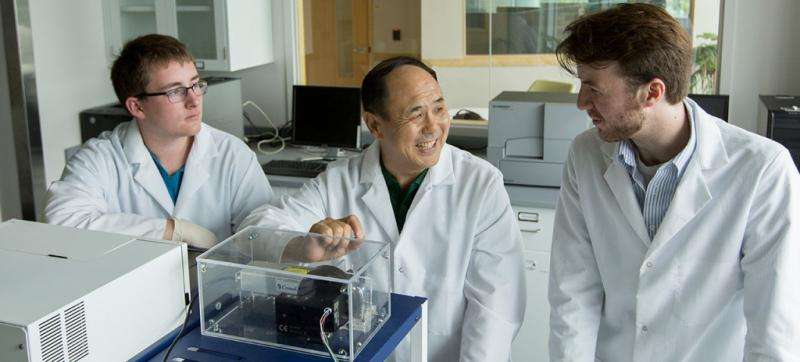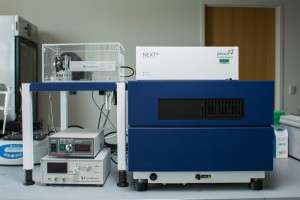Cancer-detection device poised to save lives

The early detection of cancer through screening techniques such as mammograms saves thousands of lives annually. Yinfa Ma is out to save thousands more through an easier and less costly approach.
Ma, a Curators' Distinguished Teaching Professor of chemistry at Missouri S&T, developed the "P-scan," a fast, point-of-care method for checking urine samples for biomarkers of the protein pteridine. Ma's research shows that higher levels of certain pteridine metabolites occur in urine samples from women who have been diagnosed with breast cancer.
In February, Missouri S&T entered into an agreement with Cancer.im Inc. to commercialize the P-scan. Cancer.im is a Viratech Corp. company and social network for cancer patients, survivors and caretakers.
Ma hopes his invention will soon replace – or at least supplement – the mammogram for early detection of breast cancer. He also believes that the diversity of biomarkers his device can identify could translate into screening for other types of cancer.
"The mammogram is not perfect," Ma says. "Many early cancers cannot be detected by the mammogram, while other benign tumors are falsely detected. The P-Scan technology will help alleviate this problem by using molecular biomarkers in a detection method that can be easily integrated into a routine physical screening.
"A patient donates urine, and 10 minutes later she has a result. This will be an amazing diagnostic tool."

The P-scan works by passing the urine through a small tube and detecting the fluorescence given off by the pteridine biomarkers. The advantage of this technique is that it delivers excellent sensitivity without the need for costly instrumentation. The P-Scan can detect over 70 unique compounds in urine, many of which Ma believes may also be indicators of specific cancers, which he hopes to study in future clinical trials.
"Cancer cells grow much faster than normal cells," Ma says, "so they release more waste into the urine and we begin to see a rise in certain metabolite levels."
Ma's research suggests that two of these pteridine metabolites – isoxanthopterin and xanthopterin – are present in elevated levels in the urine of women with newly diagnosed breast cancer. New clinical trials are under way at Missouri S&T to verify these findings and to test whether pteridine biomarkers can be used to detect other types of cancers.
"We will go cancer by cancer until we know," Ma says.
The National Cancer Institute estimates that more than 1.6 million people will be diagnosed with cancer this year. Nearly one in eight women will develop invasive breast cancer during her lifetime. Roughly 85 percent of women diagnosed with breast cancer have no family history of the disease.
"I am very excited about this project," Ma says. "It will save lives. That's my motivation."


















